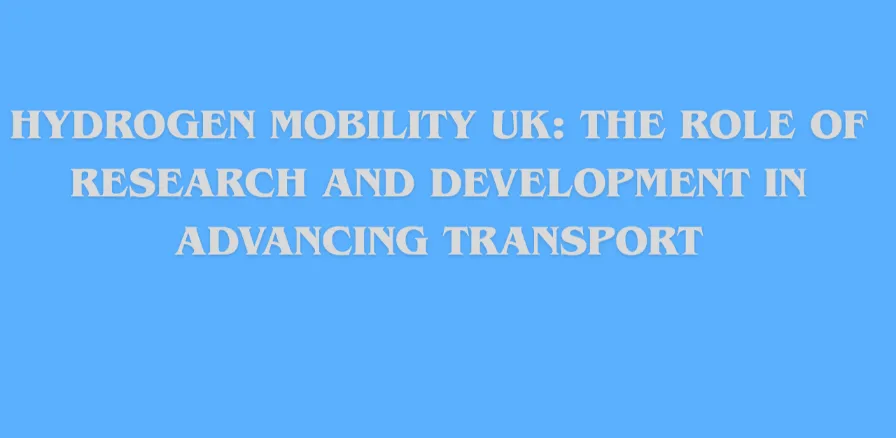The Role of Hydrogen and Fuel Cell Technology in UK Energy Security
As the United Kingdom continues its journey toward net-zero emissions and enhanced energy independence, hydrogen and fuel cell (H2FC) technology has emerged as a crucial component of the nation’s energy strategy. This comprehensive analysis explores how H2FC technologies can strengthen the UK’s energy security while supporting its ambitious decarbonization goals.

Diversifying Energy Sources for Electricity Generation
The integration of hydrogen and fuel cell technology represents a significant opportunity to diversify the UK’s electricity generation portfolio. With the increasing deployment of renewable energy sources, the challenge of intermittency becomes more pressing. Hydrogen offers a elegant solution to this challenge.
Electrolysers play a pivotal role by converting excess renewable electricity into green hydrogen during periods of high production. This stored hydrogen can then be utilized through fuel cells or hydrogen-compatible gas turbines when renewable output diminishes, effectively creating a reliable backup power source.
The implementation of such systems provides several advantages:
- Reduced curtailment of renewable energy
- Enhanced grid stability and reliability
- Decreased dependence on fossil fuel imports for baseload power
- Greater flexibility in managing peak demand periods
Decarbonizing the Gas Network
The UK’s extensive natural gas infrastructure presents both a challenge and an opportunity for hydrogen integration. Converting existing gas networks to accommodate hydrogen distribution could significantly reduce the nation’s reliance on imported natural gas while maintaining the reliability of current energy delivery systems.
Key considerations for gas network decarbonization include:
- Gradual blending of hydrogen into existing natural gas pipelines
- Strategic planning for complete conversion to hydrogen in specific regions
- Development of “hydrogen-ready” domestic appliances
- Implementation of safety protocols and standards for hydrogen distribution
The transition to hydrogen in the gas network could potentially eliminate up to 23% of current UK carbon emissions while enhancing energy independence through domestic production capabilities.
Decarbonizing Heavy-Duty Transport
The transportation sector represents one of the most promising applications for hydrogen fuel cell technology, particularly in heavy-duty vehicles where battery electric solutions face limitations. Hydrogen fuel cells offer several advantages for this sector:
- Extended range comparable to conventional diesel vehicles
- Rapid refueling times of 10-15 minutes
- Consistent performance in varying weather conditions
- Zero tailpipe emissions
The adoption of hydrogen-powered vehicles in the freight and public transport sectors could significantly reduce the UK’s dependence on imported diesel fuel while supporting air quality improvements in urban areas.
Decarbonizing Industry
Industrial processes account for approximately one-quarter of UK energy consumption, with many sectors heavily reliant on fossil fuels. Hydrogen technology offers a viable pathway to decarbonize these energy-intensive industries:
Steel Production
Direct reduction of iron ore using hydrogen
Replacement of coal-based processes
Potential for significant emissions reduction
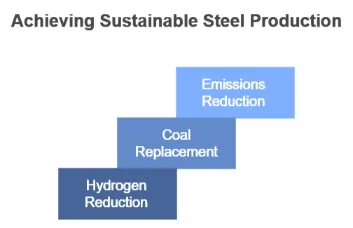
Chemical Manufacturing
- Green hydrogen as a feedstock
- Production of low-carbon ammonia
- Sustainable methanol synthesis
High-Temperature Industrial Processes
- Clean burning hydrogen for heat generation
- Integration with existing industrial equipment
- Reduced carbon footprint for manufacturing
Supporting a Domestic H2FC Industry
The development of a robust domestic hydrogen and fuel cell industry represents a strategic opportunity for the UK economy. British companies are already establishing themselves as global leaders in this sector:
Get in touch with best company
Current Industry Leaders
ITM Power: Advanced electrolyser technology
Ceres Power: Innovative fuel cell systems
Johnson Matthey: Critical materials and catalysts
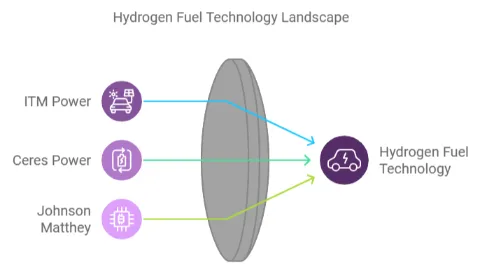
Economic Benefits
- Creation of high-skilled employment opportunities
- Export potential for UK-developed technologies
- Reduced reliance on imported energy solutions
- Enhanced industrial competitiveness
Potential for Hydrogen Export
The UK’s geographical advantages and renewable energy resources position it favorably for hydrogen production and export:
Natural Advantages
- Extensive offshore wind resources
- Depleted gas fields for storage
- Deep-water ports for shipping
- Existing gas infrastructure
Export Opportunities
Green hydrogen production from offshore wind
Blue hydrogen from natural gas with carbon capture
Hydrogen-derived products such as ammonia
Technical expertise and consulting services
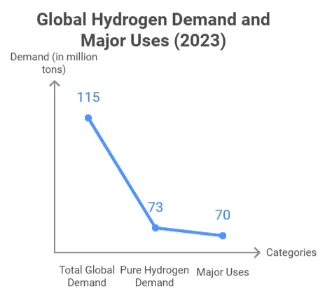
Building Resilient Energy Infrastructure
The development of hydrogen infrastructure contributes to a more resilient energy system through:
Distributed Generation
- Local hydrogen production facilities
- Reduced transmission losses
- Enhanced energy security for critical facilities
Storage Capabilities
- Strategic hydrogen storage in salt caverns
- Underground storage in depleted gas fields
- Above-ground storage for immediate use
Emergency Response
- Backup power systems for critical infrastructure
- Mobile fuel cell power units
- Resilient energy supply for essential services
Conclusion
The integration of hydrogen and fuel cell technology into the UK energy system presents a compelling opportunity to enhance energy security while advancing decarbonization goals. Success will require sustained investment, supportive policy frameworks, and collaboration between industry stakeholders.
Key recommendations for maximizing the security benefits of H2FC technology include:
- Developing clear regulatory frameworks for hydrogen infrastructure
- Incentivizing domestic production and technology development
- Supporting research and development in key areas
- Establishing international partnerships for technology exchange
- Creating market mechanisms to support early adoption
As the UK continues its energy transition, hydrogen and fuel cell technology will play an increasingly important role in ensuring a secure, sustainable, and prosperous future for the nation.
Also get more about fuels of Uk

Seaweed Biofuels UK: The Next Big Thing in Sustainable Energy?
adminThe UK’s Green Gold: Could Seaweed-Derived Fuels Power a Sustainable Future? The UK’s journey to…

UK Fuel Trends 2025 Prices, Policies and the Push for Renewables
admin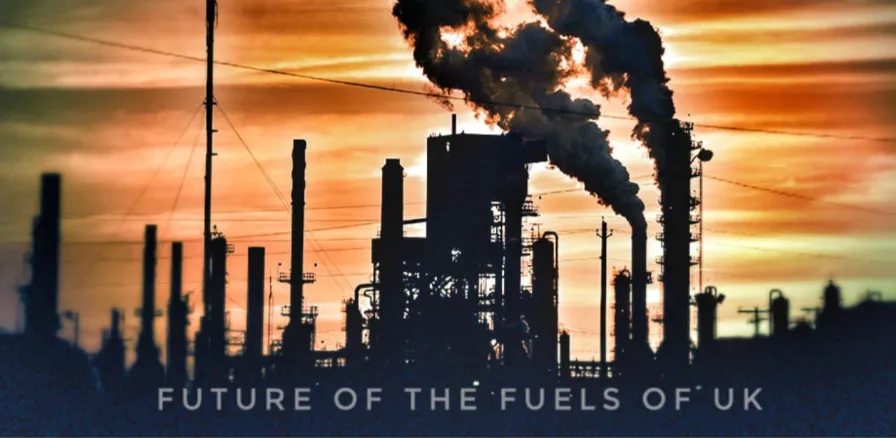
The Future of Fuels in the UK – What Are People Choosing?
admin
Hydrogen Mobility UK: Addressing Safety, Cost, and Market Adoption Challenges
admin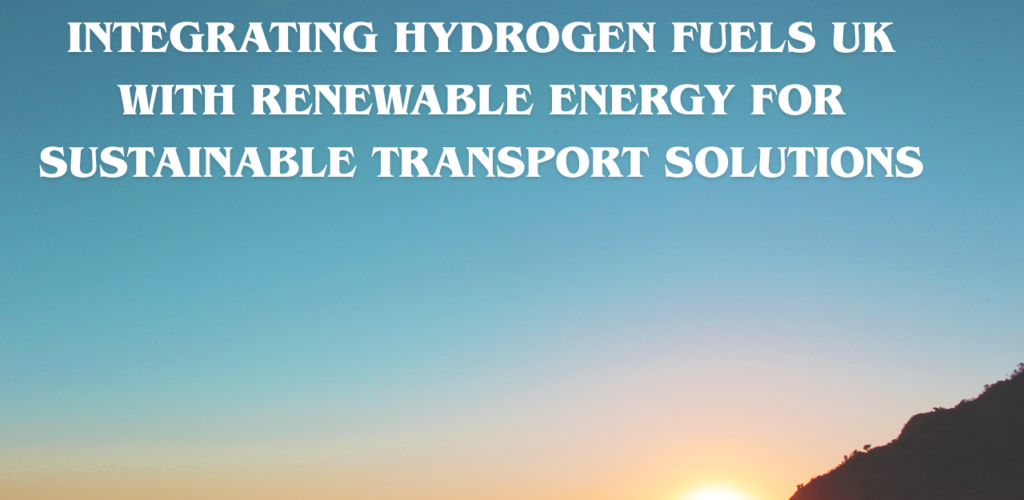
Integrating Hydrogen Fuels UK with Renewable Energy for Sustainable Transport Solutions
admin